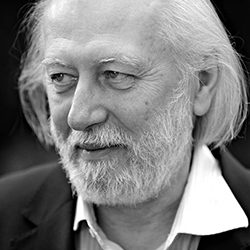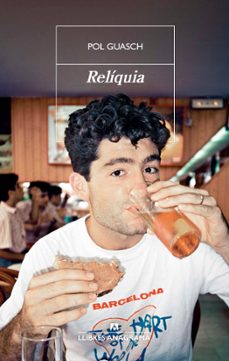📗 Libro en inglés SEIOBO THERE BELOW
PROFILE BOOKS- 9781781255117
Sinopsis de SEIOBO THERE BELOW
One of Laszlo Krasznahorkai''s finest novels available in stunning redesigned paperback.
Beauty, in Laszlo Krasznahorkai''s new novel, reflects, however fleeting, the sacred - even if we are mostly unable to bear it.
In Seiobo There Below we see the Japanese goddess Seiobo returning to mortal realms in search of perfection. An ancient Buddha being restored; the Italian renaissance painter Perugino managing his workshop; a Japanese Noh actor rehearsing; a fanatic of Baroque music lecturing to a handful of old villagers; tourists intruding into the rituals of Japan''s most sacred shrine; a heron as it gracefully hunts its prey. Told in chapters that sweep us across the world and through time, covering the furthest reaches of human experience, Krasznahorkai demands that we pause and ask ourselves these questions: What is sacred? How do we define beauty? What makes great art endure?
Melancholic and mesmerisingly beautiful, this latest novel by the author of Satantango shows us how to glimpse the divine through extraordinary art and human endeavour.
Beauty, in Laszlo Krasznahorkai''s new novel, reflects, however fleeting, the sacred - even if we are mostly unable to bear it.
In Seiobo There Below we see the Japanese goddess Seiobo returning to mortal realms in search of perfection. An ancient Buddha being restored; the Italian renaissance painter Perugino managing his workshop; a Japanese Noh actor rehearsing; a fanatic of Baroque music lecturing to a handful of old villagers; tourists intruding into the rituals of Japan''s most sacred shrine; a heron as it gracefully hunts its prey. Told in chapters that sweep us across the world and through time, covering the furthest reaches of human experience, Krasznahorkai demands that we pause and ask ourselves these questions: What is sacred? How do we define beauty? What makes great art endure?
Melancholic and mesmerisingly beautiful, this latest novel by the author of Satantango shows us how to glimpse the divine through extraordinary art and human endeavour.
Ficha técnica
Editorial: Profile Books
ISBN: 9781781255117
Idioma: Inglés
Encuadernación: Tapa blanda bolsillo
Fecha de lanzamiento: 05/05/2016
Año de edición: 2016
Especificaciones del producto
Escrito por László Krasznahorkai

László Krasznahorkai (Gyula, Hungría, 1954), premio Nobel de Literatura 2025, recorrió durante años el país después de estudiar en Budapest y ejerció diversas profesiones en pueblos y ciudades de provincias. Acantilado ha publicado Melancolía de la resistencia (2001)—con la que se presentó a los lectores en lengua española—, Al Norte la montaña, al Sur el lago, al Oeste el camino, al Este el río (2005), Guerra y guerra (2009), Ha llegado Isaías (2009), Y Seiobo descendió a la Tierra (2015), Tango satánico (2017), Relaciones misericordiosas (2023) y El barón Wenckheim vuelve a casa (2024). Varias de sus obras han sido llevadas al cine. En 2004 recibió del Gobierno húngaro el Premio Kossuth, uno de los más prestigiosos de su país, por el conjunto de su obra; en 2015, el Man Booker International; en 2021, el Premio Austríaco de Literatura Europea, y en 2024, el Premio Formentor de las Letras.
Foto: Hartwig Klappert
Descubre más sobre László Krasznahorkai Foto: Hartwig Klappert
Recibe novedades de László Krasznahorkai directamente en tu email
Opiniones sobre SEIOBO THERE BELOW
¡Sólo por opinar entras en el sorteo mensual de tres tarjetas regalo valoradas en 20€*!




































